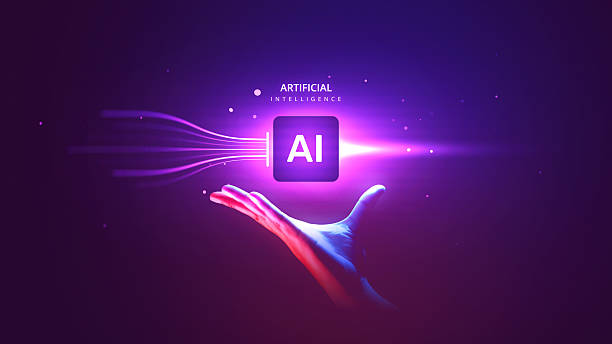What is SEO and why is it important?
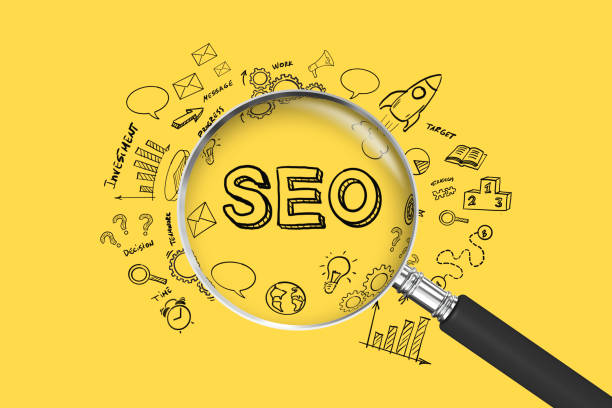
What is SEO?
#SEO (Search Engine Optimization) stands for Search Engine Optimization.
This process includes a set of techniques and strategies aimed at improving a website’s ranking in search engine results like Google, Bing, and Yahoo.
When a website ranks higher in search results, there’s a greater chance that users will see and visit it.
SEO is more than just having a website.
Having an optimized website with valuable and structured content can bring you to the top of search results.
Why is SEO important?
The importance of SEO is due to the following reasons:
- Increased Website Traffic: Improving ranking in search results leads to an increase in organic website traffic.
- Trust Building: Websites that rank high in search results usually appear more credible.
- Reduced Marketing Costs: Compared to paid advertising, SEO is a more cost-effective marketing strategy.
- Improved User Experience: SEO not only helps optimize for search engines but also improves user experience.
- Increased Conversion Rate: Organic traffic usually has a higher conversion rate because users are looking for specific solutions or information.
In summary, SEO is essential for any business that wants to succeed in the online world.
By optimizing your website for search engines, you can increase your traffic, credibility, and revenue.
Does your current website inspire the trust that potential customers should have in your business? If the answer is no, it’s time to have a professional and impactful corporate website with Rasawp.
✅ Fully custom design tailored to your brand identity
✅ Increased lead generation and business credibility in the eyes of customers⚡ Contact us for a free consultation!
Basic Principles of SEO: Familiarity with Key Concepts

Key SEO Concepts
To better understand SEO, familiarity with the following key concepts is essential:
- Keywords: These are words that users use to search in search engines.
Choosing appropriate keywords for a website is very important. - On-Page SEO: Optimizing elements that are within the website, such as titles, meta tags, content, and link structure.
- Off-Page SEO: Optimizing elements that are outside the website, such as Link Building and social media activities.
- Link Building: The process of acquiring links from other websites to your website.
Links indicate to search engines that your website is credible and valuable. - Data Analysis: Using tools like Google Analytics to analyze website traffic and user behavior.
Familiarity with these key concepts is the first step to starting the SEO process.
By understanding these concepts, you can formulate effective SEO strategies for your website.
SEO is not just a method but a journey that, with continuous patience and effort, can lead to desired results.
Keyword Research: Finding the Best Terms for SEO
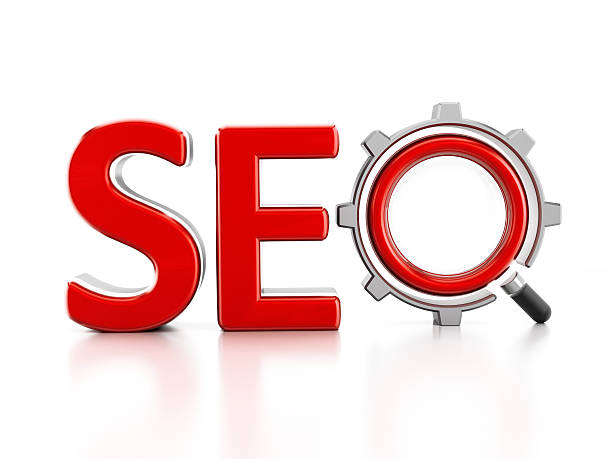
Importance of Keyword Research
Keyword research is one of the most important stages in the SEO process.
Choosing the right keywords has a significant impact on attracting targeted traffic to your website.
Keywords should be relevant to your website’s content and searched for by your target audience.
Keyword Research Tools
Various tools are available for keyword research to help you find suitable keywords.
Some of these tools include:
- Google Keyword Planner: A free tool from Google that allows you to check search volume and keyword competition.
- SEMrush: A paid tool that offers more advanced features for keyword research and competitor analysis.
- Ahrefs: Another paid tool used for link analysis and keyword research.
- Keyword Tool: A tool that provides suggested keywords from Google, YouTube, Bing, and other search engines.
How to Use Keyword Research Tools
To use keyword research tools, you must first prepare a list of keywords relevant to your business.
Then, enter these keywords into the desired tool to check their search volume, competition, and suggested keywords.
Finally, select keywords that have a high search volume and less competition.
| Keyword | Monthly Search Volume | Competition Level |
|---|---|---|
| SEO Training | 5000 | Medium |
| Website Optimization | 3000 | High |
| Improve Google Rank | 2000 | Medium |
| What is SEO | 1500 | Low |
On-Page SEO: Optimizing Web Pages for Search Engines

On-Page SEO Elements
On-Page SEO involves optimizing elements that are within web pages.
These elements include:
- Title Tag: The title displayed at the top of the browser and one of the most important ranking factors.
- Meta Description: A short description displayed below the page title in search results, which should be appealing and persuasive.
- Heading Tags: Using H1 to H6 tags to structure content and highlight keywords.
- Content: Producing high-quality, relevant, and valuable content for users and search engines.
- Images: Optimizing images by using Alt Text and compressing images to reduce page size.
- Internal Links: Using internal links to guide users to other pages of the website and improve link structure.
Important Tips for On-Page SEO
- Using Keywords in Titles and Descriptions: Keywords should be used naturally in titles and descriptions.
- Producing High-Quality and Unique Content: Website content should be high-quality, relevant, and unique to attract users and improve website ranking.
- Page Speed Optimization: Page load speed is an important ranking factor.
To improve page speed, you should compress images, use caching, and optimize code. - Mobile Optimization: The website should be optimized for mobile devices, as many users access the internet via mobile.
By following these tips, you can improve your website’s On-Page SEO and increase your ranking in search results.
On-Page SEO is the first step to achieving high ranks on Google.
Are you disappointed with your online store’s low conversion rate?
Rasawp, with its professional e-commerce website design, is your definitive solution!
✅ Increase your sales and revenue
✅ Unparalleled user experience for your customers
⚡ Get a free consultation now!
Off-Page SEO: Link Building and Increasing Website Authority
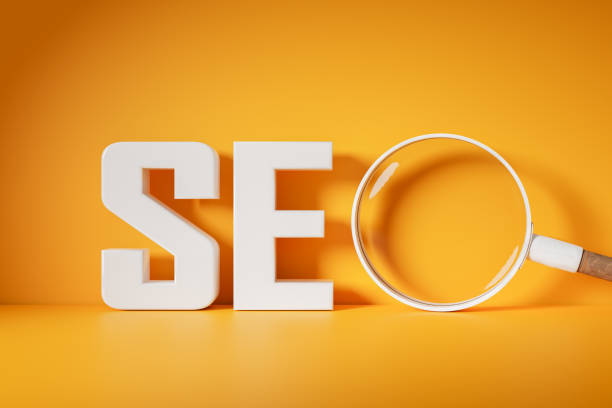
Importance of Off-Page SEO
Off-Page SEO includes activities performed outside your website, aimed at increasing its authority and ranking.
One of the most important factors in Off-Page SEO is link building.
What is Link Building?
Link building is the process of acquiring links from other websites to your website.
Links indicate to search engines that your website is credible and valuable.
The more links you receive from authoritative websites, the more your website’s ranking in search results improves.
Link Building Methods
There are various methods for link building, some of which include:
- High-Quality Content Production: Producing high-quality and valuable content is the best way to attract links.
When your content is valuable, other websites will link to it. - Guest Blogging: Writing guest articles for other websites and placing a link to your website within the article.
- Participation in Forums and Communities: Participating in forums and communities related to your business and placing a link to your website in your signature.
- Social Media Activity: Being active on social media and sharing your website’s content.
- Link Exchange: Exchanging links with relevant and authoritative websites.
Important Tips for Link Building
- Quality is More Important than Quantity: High-quality links from authoritative websites are more valuable than low-quality links from unreliable websites.
- Links Should Be Natural: Links should not be acquired artificially or in bulk.
Links should be acquired naturally and gradually. - Links Should Be Relevant: Links should be acquired from websites relevant to your business.
By using these methods and observing these tips, you can improve your website’s Off-Page SEO and increase your ranking in search results.
Image Optimization for SEO: Improving Speed and User Experience

Importance of Image Optimization
Images play an important role in website attractiveness and user experience.
However, large and unoptimized images can slow down page loading speed and affect user experience.
Image optimization for SEO includes reducing image size, using Alt Text, and choosing the appropriate format.
Image Optimization Methods
- Reducing Image Size: Using image compression tools to reduce image size without losing quality.
- Using Alt Text: Adding alternative text to images to describe the image content to search engines and users.
- Choosing the Right Format: Using appropriate formats for images.
JPEG format is suitable for images with many colors, and PNG format is suitable for images with fewer colors and transparency. - Resizing Images: Resizing images to the appropriate dimensions for display on the website.
- Using Appropriate File Names: Using appropriate file names for images that include keywords related to the image content.
Image Optimization Tools
Various tools are available for image optimization, some of which include:
- TinyPNG: A free tool for compressing PNG and JPEG images.
- ImageOptim: A free tool for optimizing images for Mac.
- ShortPixel: A paid tool for optimizing images for WordPress.
By optimizing images, you can improve page load speed, enhance user experience, and improve your website’s ranking in search results.
Website Speed Optimization: Influential Factors and Practical Solutions

Importance of Website Speed Optimization
Page load speed is an important factor in website ranking by search engines.
Users also expect web pages to load quickly.
If your web page loads slowly, users may leave your website and visit other websites.
Website speed optimization involves identifying factors affecting page load speed and implementing practical solutions to improve speed.
Factors Affecting Website Speed
- Image Size: Large and unoptimized images can reduce page load speed.
- Code: Unnecessary and unoptimized code can reduce page load speed.
- Hosting: Inadequate hosting can reduce page load speed.
- Caching: Lack of caching can reduce page load speed.
- Plugins: Too many and unoptimized plugins can reduce page load speed.
Practical Solutions for Improving Website Speed
- Image Optimization: Reducing image size, using Alt Text, and choosing the appropriate format.
- Code Optimization: Removing unnecessary code, compressing code, and using a CDN.
- Choosing Appropriate Hosting: Selecting hosting with high speed and suitable uptime.
- Using Caching: Utilizing caching to store static versions of web pages.
- Reducing the Number of Plugins: Using only essential and optimized plugins.
| Factor | Impact on Speed | Solution |
|---|---|---|
| Large images | Reduced speed | Image compression |
| Unnecessary code | Reduced speed | Remove unnecessary code |
| Weak hosting | Reduced speed | Change hosting |
By implementing these solutions, you can improve your site speed, enhance user experience, and boost your website’s ranking in search results.
Website speed optimization is one of the most important factors in SEO.
Mobile SEO: Optimizing Your Site for Mobile Devices

Importance of Mobile SEO
With the increasing use of mobile devices to access the internet, mobile SEO has become more important.
Google prefers websites that are optimized for mobile devices in search results.
Mobile SEO includes optimizing the website for correct display on mobile devices, improving page load speed on mobile devices, and providing an appropriate user experience for mobile users.
Mobile SEO Methods
- Responsive Design: Using responsive design for correct website display on various devices with different screen sizes.
- Improving Page Load Speed: Optimizing images, code, and using caching to improve page load speed on mobile devices.
- Using AMP (Accelerated Mobile Pages): Using AMP to create fast and lightweight versions of web pages for mobile devices.
- User Experience Optimization: Providing an appropriate user experience for mobile users, including using readable fonts, large buttons, and simple menus.
- Local Search Optimization: Optimizing the website for local search, including registering the business on Google Maps and providing accurate contact information and address.
By implementing these methods, you can improve your website’s mobile SEO and increase your ranking in search results on mobile devices.
Mobile SEO is very important for visibility in today’s world.
Are you worried about your e-commerce site’s low conversion rate and not achieving your desired sales?
Rasawp is your specialized solution for having a successful e-commerce website.
✅ Significant increase in conversion rate and sales
✅ Professional and user-friendly design to attract customer satisfaction
⚡ Ready for a transformation in online sales? Get a free consultation!
SEO Tools: Introducing the Best Tools for Analysis and Optimization

Importance of Using SEO Tools
SEO tools help you analyze your website’s performance, identify strengths and weaknesses, and formulate effective SEO strategies.
There are various SEO tools, each with its own features and capabilities.
Introducing the Best SEO Tools
- Google Analytics: A free tool from Google that allows you to analyze your website’s traffic, track user behavior, and measure the performance of your marketing campaigns.
- Google Search Console: A free tool from Google that allows you to check your website’s performance in search results, identify website errors, and submit your sitemap to Google.
- SEMrush: A paid tool that offers advanced features for keyword research, competitor analysis, backlink analysis, and website rank monitoring.
- Ahrefs: Another paid tool used for link analysis, keyword research, and website rank checking.
- Moz: A paid tool that provides various SEO features, including keyword research, link analysis, and website rank monitoring.
By using these tools, you can improve your website’s performance and increase your ranking in search results.
SEO requires the use of appropriate tools for analysis and review.
The Future of SEO: Trends and Upcoming Changes
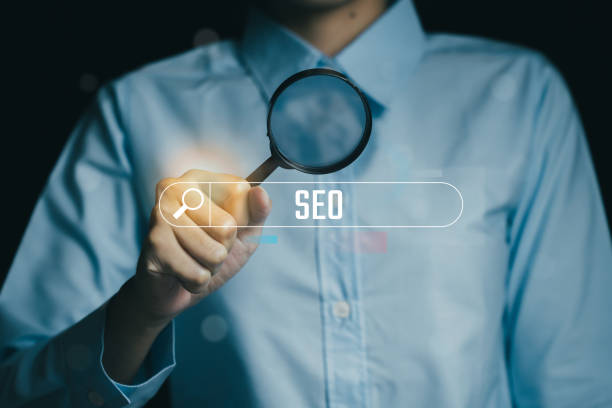
Future SEO Trends
SEO is a dynamic field and is constantly changing and evolving.
To succeed in SEO, you must be familiar with future SEO trends and adapt your strategies accordingly.
Some future SEO trends include:
- Artificial Intelligence: Using AI in SEO for data analysis, content generation, and website optimization.
- Voice Search: Increasing use of voice search and optimizing websites for voice search.
- User Experience: Greater importance of user experience and focusing on providing a suitable user experience for users.
- Video Content: Increased importance of video content and using videos to attract audiences.
- Local Search: Greater importance of local search and optimizing websites for local search.
By being aware of these trends and adapting your SEO strategies to them, you can continue to succeed in SEO in the future.
SEO requires updating and adapting to changes.
Frequently Asked Questions
| Question | Answer |
|---|---|
| What is SEO? | SEO, or Search Engine Optimization, is the process of increasing the quality and quantity of website traffic by improving the site’s ranking in organic search results of search engines like Google. |
| What are the main types of SEO? | SEO is divided into three main categories: On-Page SEO, Off-Page SEO, and Technical SEO. |
| What does On-Page SEO include? | On-Page SEO involves optimizing elements within the website, such as keywords, Title Tags, Meta Descriptions, content, URL structure, images, and internal links. |
| What is Off-Page SEO? | Off-Page SEO refers to activities outside the website that help improve its ranking, such as Backlink Building, social media marketing, and Brand Mentions. |
| What is Technical SEO? | Technical SEO focuses on optimizing the technical aspects of a website to help search engines crawl and index it better. This includes site speed, mobile-friendliness, site structure, Sitemaps, and the Robots.txt file. |
| What role do Keywords play in SEO? | Keywords are phrases that users enter into search engines. Proper and targeted use of relevant keywords in content and site elements helps search engines understand your page’s topic and display it for relevant searches. |
| What is a Backlink and why is it important? | A backlink, or inbound link, is a link from one website to another. Backlinks act as a “vote of confidence” from other sites for search engines and play an important role in a site’s credibility and ranking, especially if they are from authoritative sites. |
| How does quality content affect SEO? | High-quality, relevant, comprehensive, and unique content not only attracts and retains users but also shows search engines that your page is valuable. This helps improve ranking, reduce Bounce Rate, and increase user time on site. |
| Why is website load speed important for SEO? | Website load speed is an important ranking factor for Google. Faster sites provide a better user experience, have lower bounce rates, and are preferred by search engines. |
| Is SEO a one-time process? | No, SEO is an ongoing and long-term process. Search engine algorithms are constantly changing, competition is increasing, and site content also needs updating. Therefore, SEO requires continuous monitoring, analysis, and optimization. |
And other services of Rasawp Advertising Agency in the field of advertising
Smart Link Building: A novel service to increase user engagement through intelligent data analysis.
Smart Marketplace: A professional solution to increase site visits by focusing on attractive UI design.
Smart Direct Marketing: An innovative platform to improve customer acquisition by customizing user experience.
Smart Brand Identity: A fast and efficient solution to increase sales by focusing on Google Ads management.
Smart Digital Branding: A fast and efficient solution to increase click-through rates by focusing on Google Ads management.
And over hundreds of other services in internet advertising, advertising consulting, and organizational solutions
Internet Advertising | Advertising Strategy | Advertorial
Resources
SEO Training 2024Website Ranking Improvement GuideSEO TricksSEO Checklist 2024
? Are you ready for your business to grow and shine in the digital world? Rasawp Aafarin Digital Marketing Agency, with its expertise and experience in Search Engine Optimization (SEO), intelligent social media management, and also personal website design, paves your way to reach the pinnacles of success. With innovative and creative solutions, we guarantee a powerful and influential presence for your brand.
📍 Tehran, Mirdamad Street, next to Bank Markazi, Southern Kazeroun Alley, Ramin Alley No. 6



